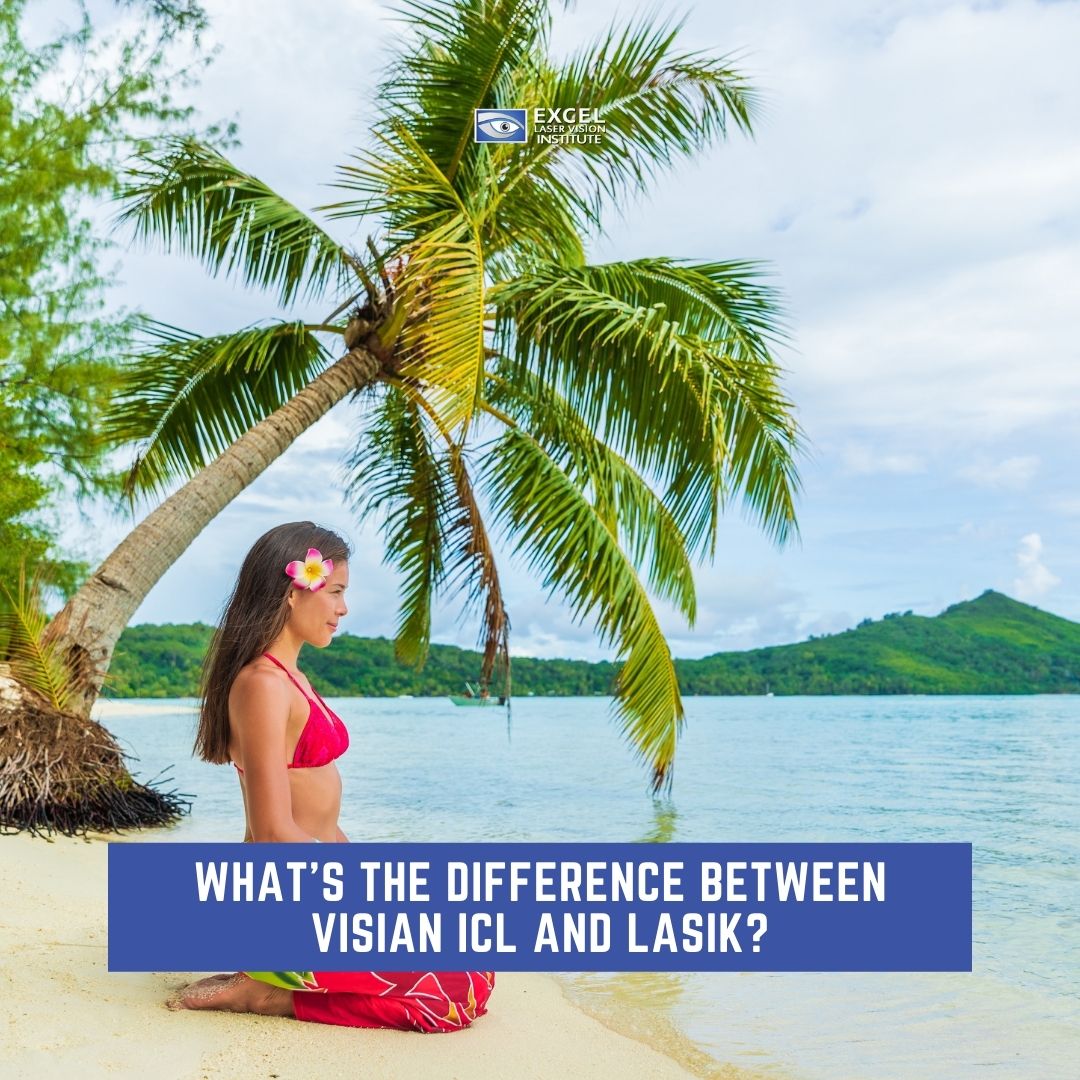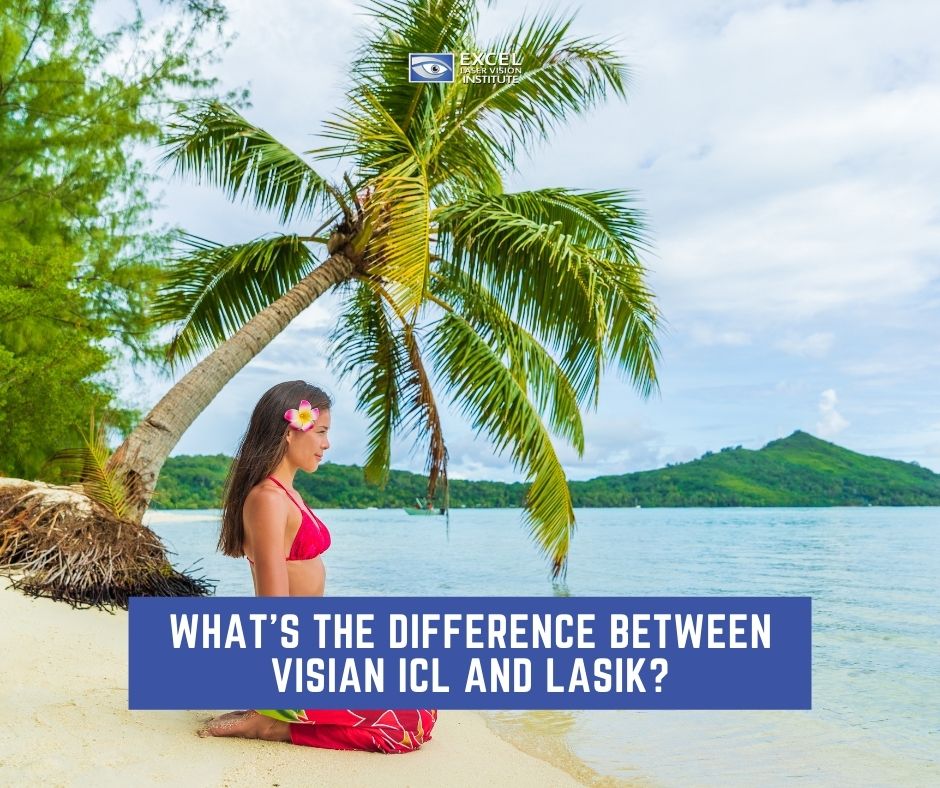
Patients often get confused about the differences between Visian ICL and LASIK. Doctor Moosa, a LASIK surgeon in Orange County, is quick to tell us that it boils down to individual factors. Some patients are usually best suited for one procedure over the other, depending on their own personal requirements. Nonetheless, there are various differences between these two procedures.

LASIK is a laser eye surgery procedure that is able to correct myopia, hyperopia, or astigmatism by reshaping the cornea using an excimer laser. On the other hand, Visian ICL is only suitable for myopia. It is very similar to having permanent contact lenses, so the cornea’s shape is not altered.
To be fair, Doctor Moosa, a LASIK surgeon in Orange County, stresses the fact that many types of refractive errors can be corrected with LASIK. However, individuals who have thin corneas or chronic dry eye may select Visian ICLs instead to avoid possible side effects.
Some patients will be happy to learn that LASIK is a shorter procedure, less costly, and has a faster recovery time compared to Visian ICL. The lenses used with Visian ICL may offer a reduced risk of side effects, better long-term correction, and they can be removed if the patient wishes to do so.
The procedure you choose is fundamentally up to you and your eye doctor. LASIK Eye professionals in Orange County can recommend the best option for you and your specific situation.
The Many Differences Between Visian ICL vs. LASIK
For several years, people who suffered from refractive errors had only two options for managing their condition: glasses or contact lenses. These options need regular eye exams to monitor the advancement of nearsightedness, farsightedness, or astigmatism. Afterward, regular updates to the lens prescription are required to continue correcting changes in the cornea.
Medical researchers have been working on new and improved methods since the 1990s to manage refractive errors. These include implantable lenses and laser-based surgery. These new treatment methods provide patients more options than ever before and can, in the course of time, free them from having to wear contact lenses or eyeglasses on a daily basis.
Laser-assisted in situ keratomileusis (LASIK) is one of the most well-known developments since contact lenses for correcting refractive errors. A laser removes tissue from your cornea to reshape it, which causes light to refract more clearly to the back of your eye. There, the retina receives the light and transmits it to your brain through your optic nerve.
LASIK has allowed millions of people all over the world to stop wearing glasses or contact lenses. It provides an easy, fast solution that can be positively life-changing.
On the flip side, they could be a reason that an eye surgeon does not recommend someone as a good candidate for LASIK. Hence the fact, that this has made scientists research other options. Implantable contact lenses, such as the Visian ICL series, let people who have thinner corneas or other eye conditions stop wearing glasses or contact lenses for years without undergoing laser-guided surgery.
Visian ICL vs. LASIK
LASIK and Visian implantable Collamer lenses (ICLs) are very different technologies that can correct your refractive error to 20/40 visual clarity or better in specific circumstances. Before you make your decision on which is more suitable for your requirements, it is best to have a good understanding of both procedures.
LASIK
Even though there are various types of laser eye surgery to correct refractive errors, LASIK is the most recognized type of this procedure and what most eye surgeons perform. This outpatient operation can correct myopia (nearsightedness), hyperopia (farsightedness not due to aging), and astigmatism, so you can often see 20/40 or better.
The process doesn’t take long at all, usually 15 minutes per eye, with much of that time involving prep for the operation. The patient receives numbing eye drops and a device to hold your eyelids open. Then, either a microkeratome (a special, small surgical knife) or a laser will cut a flap from the top of the patient’s cornea.
Then, an excimer laser removes tissue from strategic locations on the inside of the cornea to alter its shape. The surgeon puts the flap back in place and sends the patient home to relax for the rest of the day.
Many people experience good vision the next day, although having dry eyes is expected. Also, it is possible to experience halos or glares around lights and some blurry vision for a few days. Most people experience a slight decrease in these symptoms over six months while their eyes heal.
Visian ICL
Despite the fact that some surgery is involved with Visian implantable Collamer lenses (ICLs), no lasers will remove tissue from the patient’s cornea to reshape that part of your eye. Instead, Visian ICLs are a brand of phakic intraocular lenses (IOLs) similar to permanent contact lenses. Visian ICLs are manufactured by Staar Surgical, and they are designed to be implanted behind the iris but in front of your natural lens. They were approved for use in adults by the United States Food and Drug Administration (FDA) in 2005 to treat nearsightedness.
On the contrary to LASIK, Visian ICLs and other types of phakic IOLs do not treat other refractive errors such as farsightedness. If you have astigmatism and myopia, you may experience some improvement in your astigmatism, but they are not meant to treat just astigmatism.
Similar to LASIK, the implantation process for these flexible Collamer lenses takes around 15 minutes per eye, using a very small incision from a laser or a microkeratome. Recovery time after this outpatient procedure is slightly longer than LASIK, with vision returning to almost full clarity after seven days. Even though healing takes more time, there are fewer side effects reported with Visian ICLs.
If you want to learn more about how LASIK or Visian implantable Collamer lenses can help your eyesight, contact Excel Laser Vision Institute at (888) 957-3255 or visit our website. Our expert team and highly reputable LASIK surgeon, Dr. Moosa, are happy and willing to answer all your questions.




